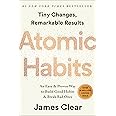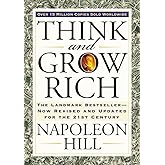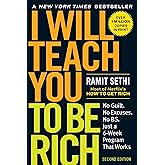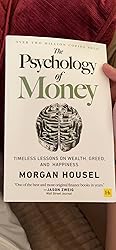
Enjoy fast, free delivery, exclusive deals, and award-winning movies & TV shows with Prime
Try Prime
and start saving today with fast, free delivery
Amazon Prime includes:
Fast, FREE Delivery is available to Prime members. To join, select "Try Amazon Prime and start saving today with Fast, FREE Delivery" below the Add to Cart button.
Amazon Prime members enjoy:- Cardmembers earn 5% Back at Amazon.com with a Prime Credit Card.
- Unlimited Free Two-Day Delivery
- Streaming of thousands of movies and TV shows with limited ads on Prime Video.
- A Kindle book to borrow for free each month - with no due dates
- Listen to over 2 million songs and hundreds of playlists
- Unlimited photo storage with anywhere access
Important: Your credit card will NOT be charged when you start your free trial or if you cancel during the trial period. If you're happy with Amazon Prime, do nothing. At the end of the free trial, your membership will automatically upgrade to a monthly membership.

Download the free Kindle app and start reading Kindle books instantly on your smartphone, tablet, or computer - no Kindle device required.
Read instantly on your browser with Kindle for Web.
Using your mobile phone camera - scan the code below and download the Kindle app.

Image Unavailable
Color:
-

-
-
- To view this video download Flash Player
-

-
 6 VIDEOS
6 VIDEOS -

 Audible sample Sample
Audible sample Sample 


The Psychology of Money: Timeless lessons on wealth, greed, and happiness Paperback – September 8, 2020

Explore your book, then jump right back to where you left off with Page Flip.
View high quality images that let you zoom in to take a closer look.
Enjoy features only possible in digital – start reading right away, carry your library with you, adjust the font, create shareable notes and highlights, and more.
Discover additional details about the events, people, and places in your book, with Wikipedia integration.
Purchase options and add-ons
Doing well with money isn’t necessarily about what you know. It’s about how you behave. And behavior is hard to teach, even to really smart people.
Money―investing, personal finance, and business decisions―is typically taught as a math-based field, where data and formulas tell us exactly what to do. But in the real world people don’t make financial decisions on a spreadsheet. They make them at the dinner table, or in a meeting room, where personal history, your own unique view of the world, ego, pride, marketing, and odd incentives are scrambled together.
In The Psychology of Money, award-winning author Morgan Housel shares 19 short stories exploring the strange ways people think about money and teaches you how to make better sense of one of life’s most important topics.
- Print length256 pages
- LanguageEnglish
- PublisherHarriman House
- Publication dateSeptember 8, 2020
- Reading age16 years and up
- Dimensions8.46 x 0.87 x 5.31 inches
- ISBN-100857197681
- ISBN-13978-0857197689
Frequently bought together

Similar items that may ship from close to you
Get to know this book
What's it about?
This book is about how people's behavior and personal biases affect their financial decisions. It's not just about math and formulas, but also about the complex psychological factors that influence our relationship with money.
Popular highlight
There is no reason to risk what you have and need for what you don’t have and don’t need.33,840 Kindle readers highlighted this
Popular highlight
Having a strong sense of controlling one’s life is a more dependable predictor of positive feelings of wellbeing than any of the objective conditions of life we have considered.28,306 Kindle readers highlighted this
Popular highlight
financial success is not a hard science. It’s a soft skill, where how you behave is more important than what you know.24,427 Kindle readers highlighted this
Popular highlight
Therefore, focus less on specific individuals and case studies and more on broad patterns.22,751 Kindle readers highlighted this
From the Publisher

|
|
|
|
|---|---|---|
|
|
|
|
|
|
|
|
|---|---|---|
|
|
|
|

Editorial Reviews
Review
"It’s one of the best and most original finance books in years." -- Jason Zweig, The Wall Street Journal
"The Psychology of Money is bursting with interesting ideas and practical takeaways. Quite simply, it is essential reading for anyone interested in being better with money. Everyone should own a copy." -- James Clear, Author, million-copy bestseller, Atomic Habits
"Morgan Housel is that rare writer who can translate complex concepts into gripping, easy-to-digest narrative. The Psychology of Money is a fast-paced, engaging read that will leave you with both the knowledge to understand why we make bad financial decisions and the tools to make better ones." -- Annie Duke, Author, Thinking in Bets
"Housel's observations often hit the daily double: they say things that haven't been said before, and they make sense." -- Howard Marks, Director and Co-Chairman, Oaktree Capital & Author, The Most Important Thing and Mastering the Market Cycle
"Morgan Housel is one of the brightest new lights among financial writers. He is accessible to everyone wanting to learn more about the psychology of money. I highly recommend this book." -- James P. O’Shaughnessy, Author, What Works on Wall Street
"Few people write about finance with the graceful clarity of Morgan Housel. The Psychology of Money is an essential read for anyone who wants to make wiser decisions or live a richer life." -- Daniel H. Pink, #1 New York Times Bestselling Author of When, To Sell Is Human, and Drive
Review
About the Author
He is a two-time winner of the Best in Business Award from the Society of American Business Editors and Writers, winner of the New York Times Sidney Award, and a two-time finalist for the Gerald Loeb Award for Distinguished Business and Financial Journalism. He serves on the board of directors at Markel. He lives in Seattle with his wife and two kids.
Product details
- Publisher : Harriman House (September 8, 2020)
- Language : English
- Paperback : 256 pages
- ISBN-10 : 0857197681
- ISBN-13 : 978-0857197689
- Reading age : 16 years and up
- Item Weight : 9.2 ounces
- Dimensions : 8.46 x 0.87 x 5.31 inches
- Best Sellers Rank: #43 in Books (See Top 100 in Books)
- #2 in Budgeting & Money Management (Books)
- #2 in Introduction to Investing
- #3 in Success Self-Help
- Customer Reviews:
Videos
Videos for this product

0:41
Click to play video

MUST WATCH before buying "The Psychology of Money"
The Frost Family

Videos for this product

1:25
Click to play video

A MUST Read! // The Psychology of Money
Sensei Jason

Videos for this product

0:42
Click to play video

The psychology of money book totally recommend
sadrine castagnet

About the author

Morgan Housel is a partner at The Collaborative Fund. He is a two-time winner of the Best in Business Award from the Society of American Business Editors and Writers, winner of the New York Times Sidney Award, and a two-time finalist for the Gerald Loeb Award for Distinguished Business and Financial Journalism. He lives in Seattle with his wife and two kids.
Customer reviews
Customer Reviews, including Product Star Ratings help customers to learn more about the product and decide whether it is the right product for them.
To calculate the overall star rating and percentage breakdown by star, we don’t use a simple average. Instead, our system considers things like how recent a review is and if the reviewer bought the item on Amazon. It also analyzed reviews to verify trustworthiness.
Learn more how customers reviews work on AmazonReviews with images
-
Top reviews
Top reviews from the United States
There was a problem filtering reviews right now. Please try again later.
The answer is our emotions. Our emotions are what compel us to get married, to root for our favorite sports teams, and to buy our favorite foods. It would be difficult to choose a bag of chips at the supermarket without our emotions—with so many options, all boasting different flavors and styles, pure rationality gets us stuck; we need our emotions to kick in and grab the bag that ‘looks’ the best. In his book, our author has abundant examples of how we behave just the same when it comes to our money and investments, ultimately leading us to buy and sell when we shouldn’t.
One of Housel’s most important financial observations is recognizing what our time horizon is. Are we investing for a three-month period, a three-year period, or a thirty-year period? The answer to this question will determine what kinds of investments we should make. “Your personal experiences with money make up maybe 0.00000001% of what’s happened in the world, but maybe 80% of how you think the world works,” Housel writes, “so equally smart people can disagree about how and why recessions happen, how you should invest your money, what you should prioritize, how much risk you should take, and so on.” There is rarely, if ever, a single answer to a financial question, and it is incumbent upon each of us to keep our time horizon in mind when making investment decisions.
We are only able to do this, however, if we have some money. Despite our desire to invest and grow our money, it is important to remember to keep some savings, or a “margin of safety,” in case of an emergency. Housel encourages his readers to save money for the unpredictable events that life will surely throw at us. A sudden medical illness or broken car part, for example. How many of us were financially prepared for Covid-19?
We invest to get wealthy, and while becoming wealthy may entail some risky bets on the stock market, the key to staying wealthy is not spending. “Wealth is the nice cars not purchased. The diamonds not bought. The watches not worn, the clothes forgone and the first-class upgrade declined.” Real wealth is having control over our time, and getting to do what we want, when we want, with who we want, for as long as we want. The great philosopher Aristotle himself once wrote that “wealth is evidently not the good we are seeking; for it is merely useful and for the sake of something else.” That something else is the freedom to do what we want with our time, and, by extension, our lives.
In sum, we should all save a little more than we think we should, invest our money for the long term, and expect the unexpected. Ups and downs in the market happen all the time for reasons we often cannot predict, and buying and selling in an effort to beat the market will rarely lead to large returns. The best investing is done over a long period of time when our money is able to compound and grow. This only works if we don’t let our emotions highjack our brains and we stick to our time horizon. Our goal is not wealth; our goal is control over how we spend our time.
Reviewed in the United States on May 16, 2024
The answer is our emotions. Our emotions are what compel us to get married, to root for our favorite sports teams, and to buy our favorite foods. It would be difficult to choose a bag of chips at the supermarket without our emotions—with so many options, all boasting different flavors and styles, pure rationality gets us stuck; we need our emotions to kick in and grab the bag that ‘looks’ the best. In his book, our author has abundant examples of how we behave just the same when it comes to our money and investments, ultimately leading us to buy and sell when we shouldn’t.
One of Housel’s most important financial observations is recognizing what our time horizon is. Are we investing for a three-month period, a three-year period, or a thirty-year period? The answer to this question will determine what kinds of investments we should make. “Your personal experiences with money make up maybe 0.00000001% of what’s happened in the world, but maybe 80% of how you think the world works,” Housel writes, “so equally smart people can disagree about how and why recessions happen, how you should invest your money, what you should prioritize, how much risk you should take, and so on.” There is rarely, if ever, a single answer to a financial question, and it is incumbent upon each of us to keep our time horizon in mind when making investment decisions.
We are only able to do this, however, if we have some money. Despite our desire to invest and grow our money, it is important to remember to keep some savings, or a “margin of safety,” in case of an emergency. Housel encourages his readers to save money for the unpredictable events that life will surely throw at us. A sudden medical illness or broken car part, for example. How many of us were financially prepared for Covid-19?
We invest to get wealthy, and while becoming wealthy may entail some risky bets on the stock market, the key to staying wealthy is not spending. “Wealth is the nice cars not purchased. The diamonds not bought. The watches not worn, the clothes forgone and the first-class upgrade declined.” Real wealth is having control over our time, and getting to do what we want, when we want, with who we want, for as long as we want. The great philosopher Aristotle himself once wrote that “wealth is evidently not the good we are seeking; for it is merely useful and for the sake of something else.” That something else is the freedom to do what we want with our time, and, by extension, our lives.
In sum, we should all save a little more than we think we should, invest our money for the long term, and expect the unexpected. Ups and downs in the market happen all the time for reasons we often cannot predict, and buying and selling in an effort to beat the market will rarely lead to large returns. The best investing is done over a long period of time when our money is able to compound and grow. This only works if we don’t let our emotions highjack our brains and we stick to our time horizon. Our goal is not wealth; our goal is control over how we spend our time.

You may think you don’t have enough money to make a difference for your future. I think this book will show you, how even with those thoughts, that you can.
Others may believe they have more than enough. Those too are risky thoughts and beliefs.
Because people are different, everyone should read this book to see what you uniquely learn about yourself and how you should think about money.
Chocked full of great insights to guide us all.
Quotes that hit home from various chapters are presented below. There are many more quotes possible, but then you’d miss the message between each quote. I strongly suggest getting the book to see how these below snippets string together into a powerful story about how we think and behave towards money matters.
Quote:
• Your personal experiences with money make up maybe 0.00000001% of what’s happened in the world, but maybe 80% of how you think the world works.
• Luck and risk are siblings.
• Yes, but I have something he will never have … enough.
• There is no reason to risk what you have and need for what you don’t have and don’t need.
• The hardest financial skill is getting the goalpost to stop moving.
• $81.5 billion of Warren Buffett’s $84.5 billion net worth came after his 65th birthday.
• Buffett began serious investing when he was 10 years old.
• His skill is investing, but his secret is time. That’s how compounding works.
• But good investing isn’t necessarily about earning the highest returns, because the highest returns tend to be one-off hits that can’t be repeated. It’s about earning pretty good returns that you can stick with and which can be repeated for the longest period of time. That’s when compounding runs wild.
• Getting wealthy vs. staying wealthy.
• Getting money is one thing. Keeping it is another.
• Planning is important, but the most important part of every plan is to plan on the plan not going according to plan.
• No one is impressed with your possessions as much as you are.
• When you see someone driving a nice car, you rarely think, “Wow, the guy driving that car is cool.” Instead, you think, “Wow, if I had that car people would think I’m cool.”
• Humility, kindness, and empathy will bring you more respect than horsepower ever will.
• Spending money to show people how much money you have is the fastest way to have less money.
• Money has many ironies. Here’s an important one: Wealth is what you don’t see.
• Past a certain level of income people fall into three groups: Those who save, those who don’t think they can save, and those who don’t think they need to save.
• Building wealth has little to do with your income or investment returns, and lots to do with your savings rate.
• The value of wealth is relative to what you need.
• Past a certain level of income, what you need is just what sits below your ego.
• People’s ability to save is more in their control than they might think.
• Things that have never happened before happen all the time.
• The thing that makes tail events easy to underappreciate is how easy it is to underestimate how things compound. How, for example, 9/11 prompted the Federal Reserve to cut interest rates, which helped drive the housing bubble, which led to the financial crisis, which led to a poor jobs market, which led to tens of millions to seek a college education, which led to [over a trillion dollars] in student loans with [a high percentage of default rates].
• The correct lesson to learn from surprises is that the world is surprising.
• The most important part of every plan is planning on your plan not going according to plan.
• The purpose of the margin of safety is to render the forecast unnecessary.
• The End of History Illusion is what psychologists call the tendency for people to be keenly aware of how much they’ve changed in the past, but to underestimate how much their personalities, desires and goals are likely to change in the future. [Thus, their history of change won’t change anymore into their future].
• Every job looks easy when you’re not the one doing it.
• Successful investing looks easy when you’re not the one doing it. Hold stocks for the long run … but do you know how hard it is to maintain a long-term outlook when stocks are collapsing?
• Price … not dollars and cents … it’s volatility, fear, doubt, uncertainty … all of which are easy to overlook until you’re dealing with them in real time.
• Beware of taking financial cues from people playing a different game than you are.
• When investors have different goals and time horizons – and they do in every asset class – prices that look ridiculous to one person can make sense to another, because the factors those investors pay attention to are different.
• The interesting thing about [absolutely pessimistic] stories is that their polar opposite – forecasts of outrageous optimism – are rarely taken as seriously as prophets of doom.
• Pessimism just sounds smarter and more plausible than optimism.
• …progress happens too slowly to notice, but setbacks happen too quickly to ignore.
• The more you want something to be true, the more likely you are to believe a story that overestimates the odds of it being true.
• We don’t know what we don’t know.
• Coming to terms with how much you don’t know means coming to terms with how much of what happens in the world is out of your control. And that can be hard to accept.
• Less ego, more wealth.
• If you want to to do better as an investor, the single most powerful thing you can do is increase your time horizon.
Unquote.
There’s a lot of wisdom alone in the various quotes above. There’s even more wisdom reading how they string together to see the larger story line to understand your psychology of money applied in your own life.
Each person reading Housel’s work will get something different out of it than someone else. And each time you read it (I suggest more than once) you too will get yet still something else out of it.


























































